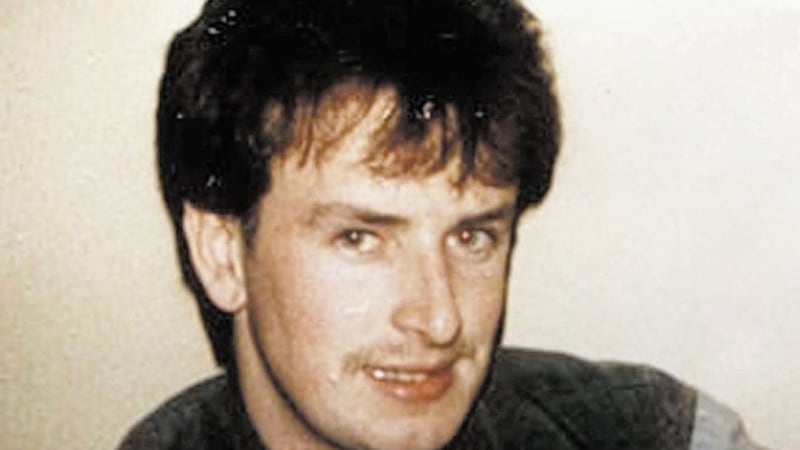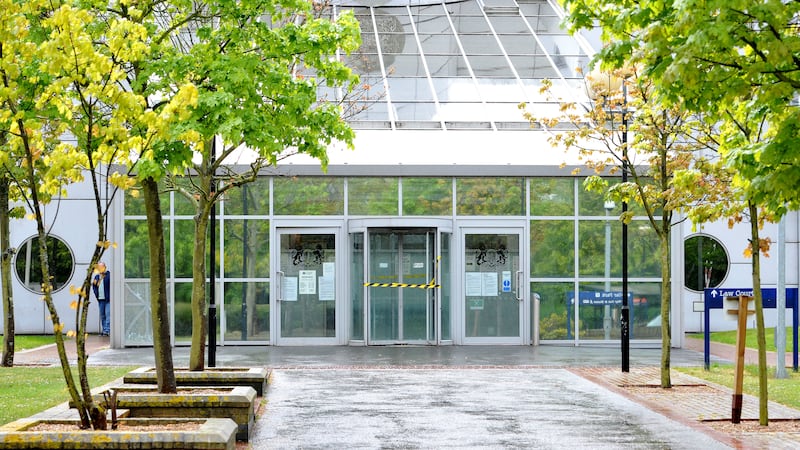Former Tyrone star Peter Canavan has urged the GAA to put pressure on the Irish government to release a report into the British army killing of Aidan McAnespie.
The all-Ireland winner spoke out just weeks before the 30th anniversary of his killing by a British soldier in February 1988.
In an unprecedented move, former GAA president Peter Quinn also said it appeared that Mr McAnespie’s killing “was the first instance where a GAA man appears to have been targeted for assassination coming from or going to a GAA match” and urged the association to support any new investigation.
The 23-year-old was shot shortly after walking through a British army checkpoint on his way to Aghaloo GAC’s grounds near Aughnacloy in Co Tyrone in 1988.
Manslaughter charges brought against the soldier who fired the shots, Grenadier Guardsman David Jonathan Holden, were later dropped.
He was later fined for negligent discharge of his weapon and allowed to return to duty.
He was given a medical discharge in 1990.
The British army later claimed that three shots were fired from inside a sanger after a general purpose machine gun (GPMG) Holden was moving, slipped from his hands which were said to be wet at the time.
Mr McAnespie was hit in back by one of the rounds which ricocheted off the road a short distance behind him.
Before his death Mr McAnespie, who was a Sinn Féin election worker, complained that he had been constantly harassed and threatened by British soldiers.
The Historical Enquiries Team concluded that that Holden’s explanation was the “least likely version" of events.
In 2009 the British government said it “deeply regretted” Mr McAnespie’s death.
In 2016 Attorney General John Larkin referred the case back to the Director of Public Prosecutions and it is understood it is still being considered.
His death caused widespread anger and in an unusual move the Irish government appointed Garda deputy commissioner Eugene Crowley to investigate the killing.
However, his findings have never been made public.
Speaking during a special report on RTE’s Drivetime programme last night former Tyrone great Peter Canavan said the GAA should put pressure on the Irish government to release the report.
“And it’s hard to believe that it’s Dublin we are waiting on and as I say bad and all as Aidan’s death was I think what has confounded the situation is the cover up and some of the things that happened after it,” he told RTE.
“And I know that the GAA are very good at keeping out of politics but on this occasion 30 years after Aidan’s death, one of their own members going to support his own football club that they should apply a bit of pressure to the Irish government so that likewise these findings can be released and I think that’s the very least they could do in this case.”
It has also emerged that authorities in the north have removed parts of Mr McAnespie’s body during his post mortem, including chest tissue and part of his rib cage.
His family now want his body parts returned for Christian burial.
Former GAA president Peter Quinn believes that the GAA has a role to play in the McAnespie case.
“This is an incident that implications both on the playing field because he was a playing member and off the playing field and I think it would be very remiss of the GAA to say that they have no role whatsoever,” he said.
“Their role may be limited relative to the role of politicians and people like that but certainly the GAA have a role.”
Mr McAnespie’s brother Sean said it is very important that the Irish government hand over the Crowley Report.
“It’s one more step to get to the truth, there might be stuff in there that could bring a conviction,” he said.
A spokeswoman for the GAA last night said it had “it had no comment at this moment”.







